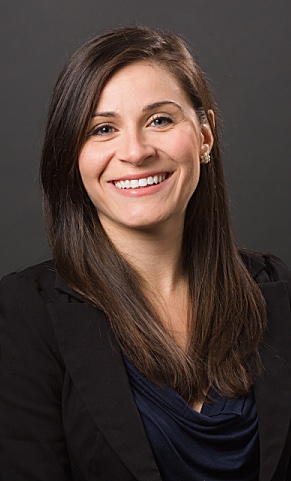Lupus Program at Yale Combines Patient-Centered Care with Cutting-Edge Research
Written by |

Lupus, also known as systemic lupus erythematosus (SLE), is difficult to diagnose and a challenge to treat, with a range of symptoms and no known cause or cure. But treatment options exist, including therapies being studied at Yale School of Medicine in New Haven, Connecticut.
 YaleNews’s Ziba Kashef recently interviewed Dr. Lenore Buckley — an adult and pediatric rheumatologist and professor of medicine — whose research interests include lupus and inflammatory arthritis, glucocorticoid osteoporosis, and the transition of teenagers and young adults with rheumatic diseases to adult care. Dr. Buckley is current director of the Yale Medicine, Section of Rheumatology, Transition of Care Programs for young adults with rheumatic diseases, which recently launched an innovative clinical program for patients with lupus.
YaleNews’s Ziba Kashef recently interviewed Dr. Lenore Buckley — an adult and pediatric rheumatologist and professor of medicine — whose research interests include lupus and inflammatory arthritis, glucocorticoid osteoporosis, and the transition of teenagers and young adults with rheumatic diseases to adult care. Dr. Buckley is current director of the Yale Medicine, Section of Rheumatology, Transition of Care Programs for young adults with rheumatic diseases, which recently launched an innovative clinical program for patients with lupus.
Care offered by the program is both multidisciplinary and patient-centered, Dr. Buckley said, and relies on the strong pre-existing foundation of care for lupus patients at Yale provided by Drs. Cristina Brunet, Janine Evans, Liana Fraenkel, Insoo Kang, and Gordon Hutchinson, and their  colleagues in the Section of Rheumatology. To enhance an approach that incorporates the coaching and education critical for people with a lifelong disease — especially one many doctors often have little time for — they developed a Wellness Program, led by Jacinta Rendali, a board-certified Family Nurse Practitioner working in rheumatology at Yale. Rendali has a special interest in the treatment of lupus and other connective tissue disorders, and is a key member of the Transition of Care Program.
colleagues in the Section of Rheumatology. To enhance an approach that incorporates the coaching and education critical for people with a lifelong disease — especially one many doctors often have little time for — they developed a Wellness Program, led by Jacinta Rendali, a board-certified Family Nurse Practitioner working in rheumatology at Yale. Rendali has a special interest in the treatment of lupus and other connective tissue disorders, and is a key member of the Transition of Care Program.
After an initial workup with patients to discover their goals, barriers to care, and level knowledge about lupus, Rendali sees patients on a quarterly basis to assist them in understanding their disease and treatments, in being pro-active in decision-making, and in better utilizing the health care system, particularly during disease flare-ups so as to reduce hospitalizations.
Because the preponderant lupus demographic is women, Dr. Buckley noted in the interview that many care aspects involve women’s health issues, with Wellness Program modules focused on careful planning before, during, and pregnancies, as well as regular preventive care that includes immunizations, Pap smears, mammograms, and assessment of bone health as women age.
Sun exposure can worsen lupus symptoms, so people with the disease need to practice sun avoidance. They also have a higher risk of cardiovascular disease and strokes. Consequently, the Yale program includes a sun protection module and cardiovascular health modules focused on exercise, healthy eating, weight monitoring, and cholesterol and blood pressure screenings.
 Dr. Fotios Koumpouras was recruited to join the Yale Medicine’s rheumatology faculty last year as an assistant professor of medicine, as director and leader of clinical research for the Yale Lupus Program, and as principal investigator of the Yale Rheumatology BioRepository, which captures longitudinal data and biologic specimens from lupus patients participating in clinical research.
Dr. Fotios Koumpouras was recruited to join the Yale Medicine’s rheumatology faculty last year as an assistant professor of medicine, as director and leader of clinical research for the Yale Lupus Program, and as principal investigator of the Yale Rheumatology BioRepository, which captures longitudinal data and biologic specimens from lupus patients participating in clinical research.
Dr. Koumpouras has worked closely with Dr. Susan Manzi, director of the Lupus Center of Excellence at the Allegheny Health Network in Pittsburgh, Pennsylvania, and medical director of the Lupus
the Lupus Center of Excellence at the Allegheny Health Network in Pittsburgh, Pennsylvania, and medical director of the Lupus
Foundation of America at the University of Pittsburgh, and was an integral member of the clinical research team at her lab. He was involved in both investigator-initiated and pharmaceutical clinical trials for Lupus/SLE, was principal site investigator for the ITN trial of abatacept and cyclophosphamide for lupus nephritis, and a principal as well as site investigator for the “Double-Blind Randomized Placebo-Controlled Trial of the Effect of Vitamin D3 on the Interferon Signature in Patients with Systemic Lupus Erythematosus“ that was published in the journal Arthritis and Rheumatology (Volume 67, Issue 7, pages 1848–1857, July 2015 DOI: 10.1002/art.39108).
He was also site co-principal investigator for the Systemic Lupus International Collaborating Clinics (SLICC) clinical research program that resulted in improved criteria for diagnostic assessment of SLE, and was co-investigator of the “Safety and Effectiveness of Belimumab in Systemic Lupus Erythematosus Registry” (SABLE) clinical trial (NCT01729455) studying the side effects and effectiveness of Benlysta (belimumab), when given with other lupus medicines, in adults with active disease. And he served as site principal investigator for BLISS 99 and co-principal investigator for HGS 1006 — the clinical trials that led to approval of Benlysta, which suppresses the immune response in lupus, becoming the first new U.S. Food and Drug Administration (FDA)-approved medication for lupus in over 20 years. At Yale Medicine, Koumpouras sees patients with SLE and related disorders.
The Lupus Program at Yale was recently joined the new Lupus Clinical Investigators Network (LuCIN), a collection of North American academic lupus centers that will conduct clinical trials as part of the drug repositioning program LRxL-STAT. Conducted in partnership with Ampel Biosolutions, LRxL-STAT has identified and will begin testing potential new lupus treatments from among medicines approved for other conditions. Its objective is to form a group of lupus clinical researchers who will conduct focused, biomarker-rich, and proof-of-concept clinical trials to develop new treatments. Working with the LuCIN, the Yale Lupus Program will conduct clinical trials testing benefits of pharmacologic and non-pharmacologic lupus interventions only be available at select academic medical centers in the U.S. and Canada, providing an opportunity to the program’s lupus patients to participate in clinical trials that could potentially help them and other patients worldwide.
Dr. Buckley said another important element of the Transition Program is allowing young patients at-risk for more severe diseases to work with Yale pediatricians Dr. Paul McCarthy and Dr. Ian Ferguson in a special adult program emphasizing education and shared decision-making.
She concluded that the Yale Lupus Program is uniquely positioned to offer innovative multidisciplinary clinical and research programs for people with lupus and other complex medical conditions.
Lupus is a severe and progressively disabling systemic and chronic autoimmune disorder that primarily affects women in their prime. The Lupus Research Institute estimates that more than 90 percent of lupus sufferers are women, primarily of childbearing age. Women of racial minorities are statistically two to three times more likely to develop lupus than Caucasians, males, children, and teenagers, but people of all races and ethnic groups can develop the disorder.
In lupus, various cell types and immunological pathways become dysregulated, allowing the immune system to produce antibodies to cells that attack and destroy healthy tissue — causing pain, swelling and inflammation, and damage to areas that include the joints, skin, blood, heart, kidneys, lungs, and bones. Lupus health effects can range from a skin rash to a heart attack, and the disease tends to be more severe in younger patients.
Ziba Kashef’s complete YaleNews interview with Dr. Lenore Buckley, “Listening to lupus,” can be found at:
https://news.yale.edu/2016/05/04/listening-lupus
Sources:
YaleNews
Yale School of Medicine Section of Rheumatology
Lupus Clinical Investigators Network(LuCIN)
The Lupus Research Institute
ClinicalTrials.gov




